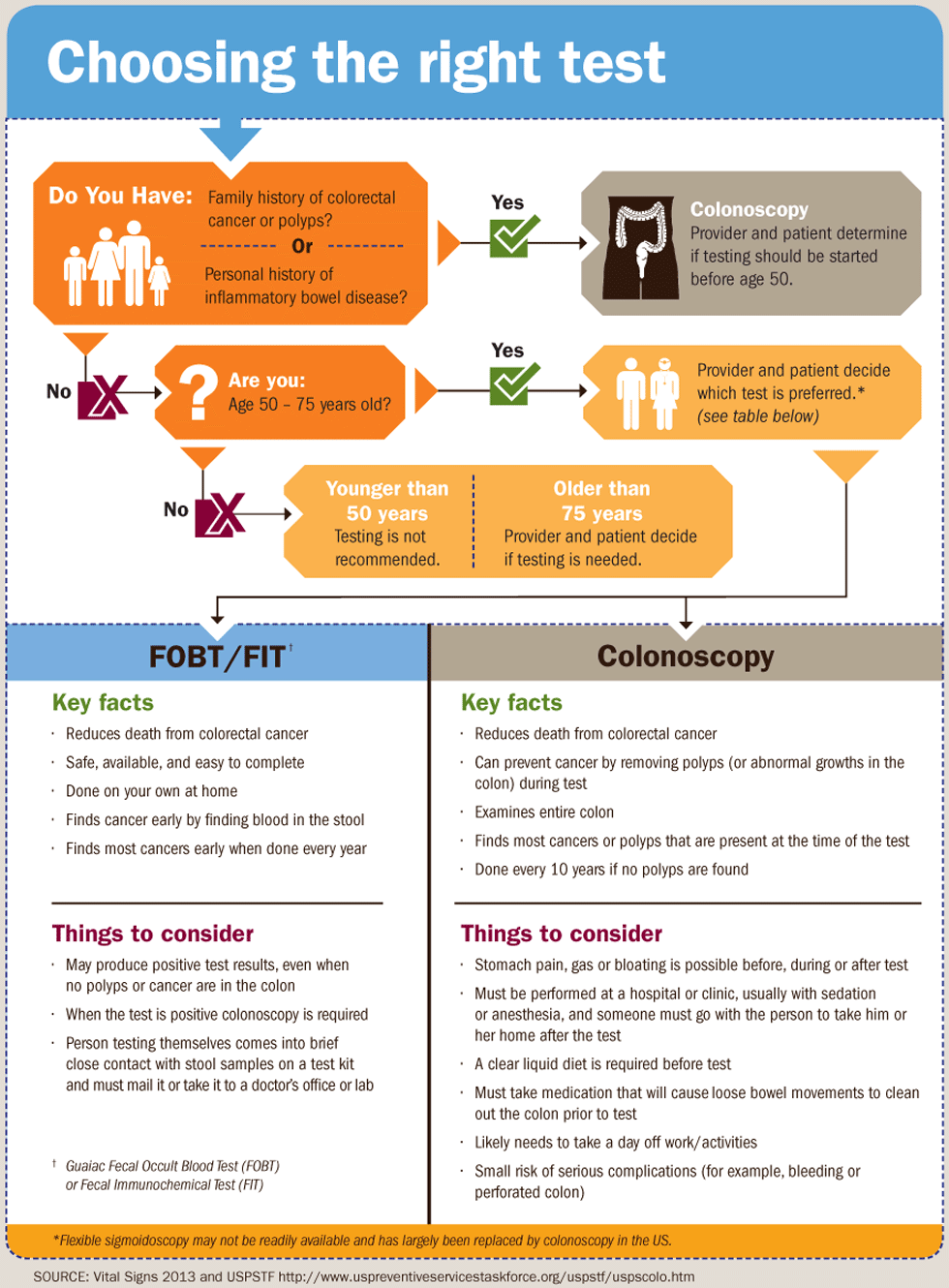Colorectal Cancer Tests Save Lives infographics
Colorectal Cancer Tests Save Lives infographics
Vital Signs

Graphic illustrating the colorectal cancer testing status of adults aged 50 to 75 years. 65 percent of adults are up to date on colorectal cancer testing, 28 percent have never been tested, and 7 percent have been tested but are not up to date. Of the 28 percent of adults who have never been tested, 76 percent are insured and 24 percent are uninsured.

Choosing the right test
Do you have: Family history of colorectal cancer or polyps?
Personal history of inflammatory bowel disease?
Answer Yes: Colonoscopy
Provider and patient determine if testing should be started before age 50.
Answer No: Are you Age 50 – 75 years old?
Answer Yes: Provider and patient decide which test is preferred.* (see table below)
Answer No: Younger than 50 years Testing is not recommended. Older than 75 years Provider and patient decide if testing is needed.
| FOBT/FIT† |
Colonoscopy |
Key facts
- Reduces death from colorectal cancer
- Safe, available, and easy to complete
- Done on your own at home
- Finds cancer early by finding blood in the stool
- Finds most cancers early when done every year
Things to consider
- May produce positive test results, even when no polyps or cancer are in the colon
- When the test is positive colonoscopy is required
- Person testing themselves comes into brief close contact with stool samples on a test kit and must mail it or take it to a doctor’s office or lab
†Guaiac Fecal Occult Blood Test (FOBT)
or Fecal Immunochemical Test (FIT) |
Key facts
- Reduces death from colorectal cancer
- Can prevent cancer by removing polyps (or abnormal growths in the colon) during test
- Examines entire colon
- Finds most cancers or polyps that are present at the time of the test
- Done every 10 years if no polyps are found
Things to consider
- Stomach pain, gas or bloating is possible before, during or after test
- Must be performed at a hospital or clinic, usually with sedation or anesthesia, and someone must go with the person to take him or her home after the test
- A clear liquid diet is required before test
- Must take medication that will cause loose bowel movements to clean out the colon prior to test
- Likely needs to take a day off work/activities
- Small risk of serious complications (for example, bleeding or perforated colon)
|
| *Flexible sigmoidoscopy may not be readily available and has largely been replaced by colonoscopy in the US. |
| SOURCE: Vital Signs 2013 and USPSTF |


